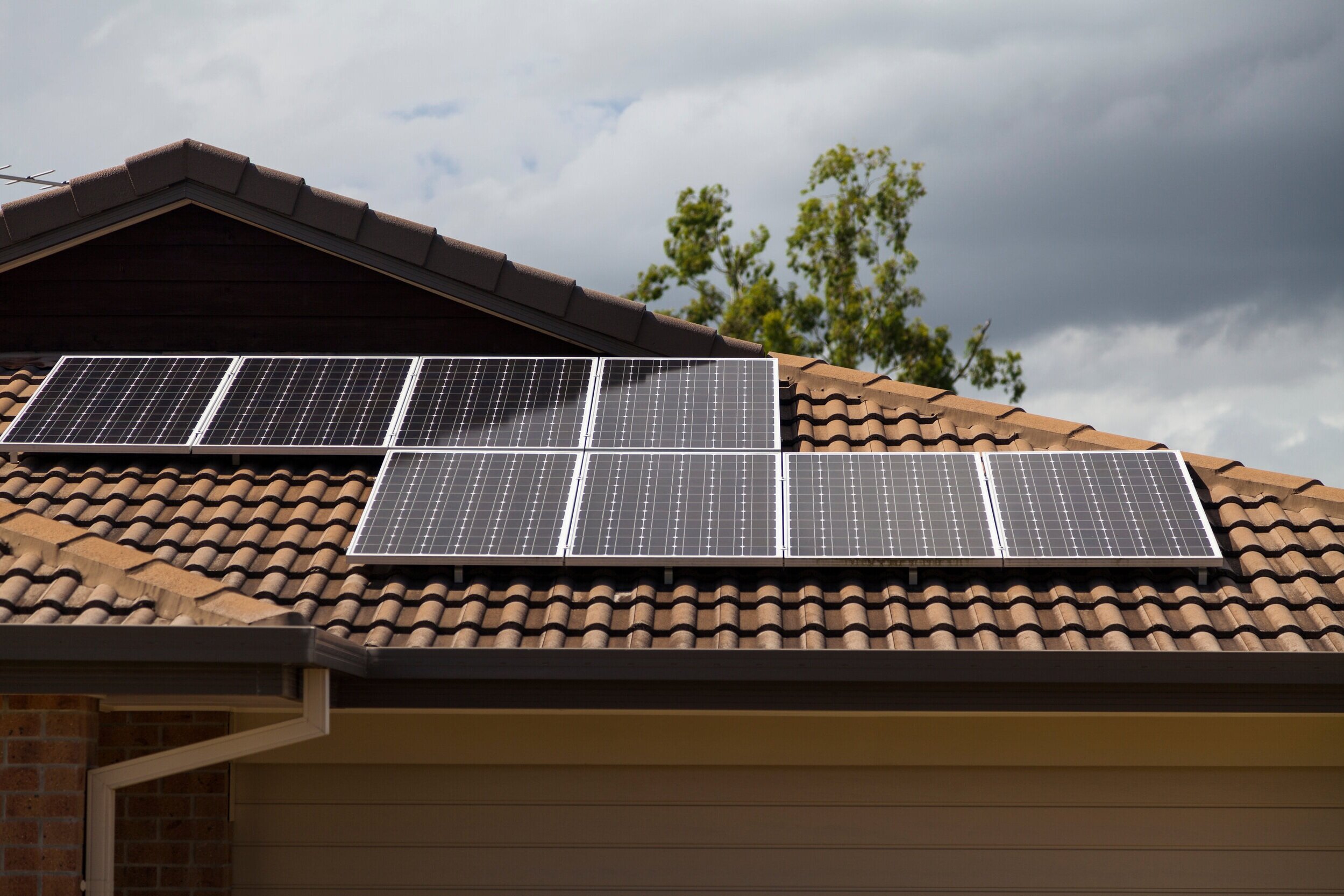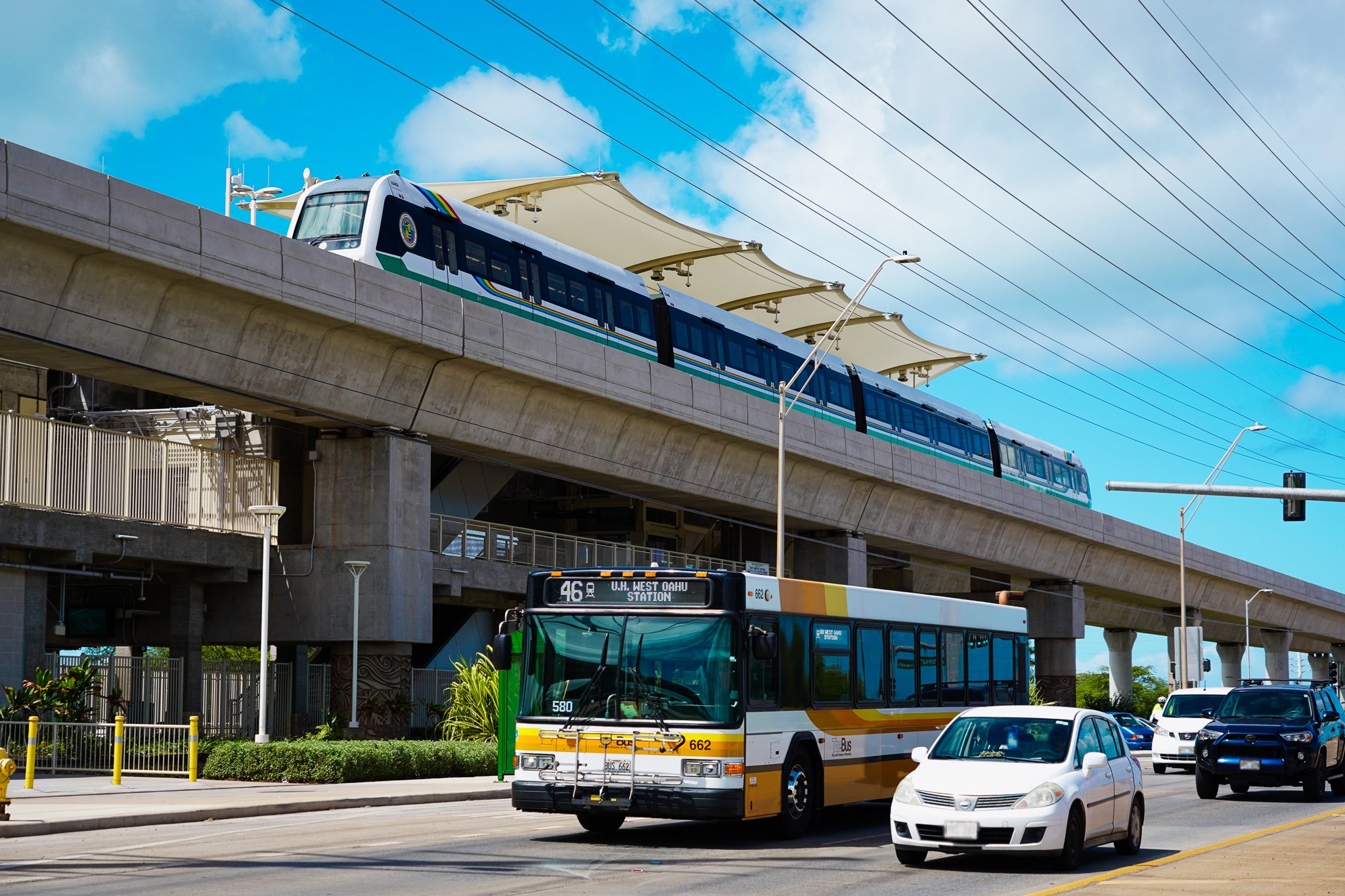
Climate Action
Creating a healthier and more affordable future without carbon pollution.
Climate change impacts are accelerating globally and require that we all work together to rapidly reduce our carbon pollution. The same actions that will reduce pollution on a global scale can also help create a healthier and more affordable future right here on O’ahu through improved transportation, energy efficiency, renewable energy, and resource management.
By implementing actions outlined in the Climate Action Plan and Resilience Strategy, and through the City’s commitment to the Paris Climate Agreement, we’re moving Oʻahu to a 100% clean energy future by 2045.
-
Climate action is making changes to the way we live and work in order to reduce or eliminate the amount of climate pollution that our activities create. Sometimes these actions come from adopting new technologies and sometimes they come from changes in how we live and work. Often, these actions also result in increased affordability and safer and healthier living environments.
-
Successfully combating climate change requires action at all levels, from individuals and organizations like corporations and unions, to local, state, and national governments all around the world. The City focuses its efforts on actions within our control that reduce pollution while also increasing affordability, health, and safety for O‘ahu residents. This includes things that local government controls directly (such as making streets safer for all users) and things we do to lead by example so others can follow (like switching our vehicle fleet from diesel to electricity). We are also constantly working with local community and business partners to learn how we can help them accelerate climate action in their homes and businesses.
-
All City departments are making efforts to reduce carbon pollution. The Mayor and City team recognize our responsibility in addressing climate change, and understand that for climate action to be successful, it must go beyond greenhouse gas reductions and also result in increased affordability and better quality of life for all residents and businesses, starting with frontline communities.
City and County of Honolulu
Climate Action Plan
The Climate Action Plan is a community-driven strategy to combat climate change and eliminate fossil fuel emissions—the root cause of climate change. The plan lays out programs, policies, and actions to reduce Oʻahu's greenhouse gas emissions 45% by 2025 (relative to 2015). The City is in the process of updating the Climate Action Plan for 2025-2030. Click the button below to learn more and visit the CAP Community page to get involved in the update!
Key Topics
Ground Transportation
Ground transportation—our cars, trucks, motorcycles, buses, and other heavy-duty vehicles—accounts for roughly 20% of O‘ahu’s carbon pollution, a trend that has remained flat over the last decade. Enabling safer, more affordable transportation options for residents to take transit, bike, walk, or carpool can both reduce emissions and improve overall quality of life on O‘ahu.
Efficient Buildings
Providing electricity and gas for O‘ahu’s homes and businesses creates over 30% of O‘ahu’s carbon pollution. The building industry is a key partner in reducing these emissions and the best time to make a building more efficient is when it is being built. For new buildings, the City’s Energy Code determines a building’s minimum efficiency, whereas the City supports efficiency in existing buildings through Building Benchmarking and through collaboration to support building retrofits.
Resources & Waste
Emissions from waste and wastewater disposal and management are about 3% of O‘ahu’s carbon pollution. Organic waste in landfills and wastewater create a significant carbon footprint through the release of methane. Strategies that focus on both waste prevention and maximizing the efficiency of the waste we cannot avoid can help to reduce emissions locally while also having a notable impact on emissions elsewhere.





